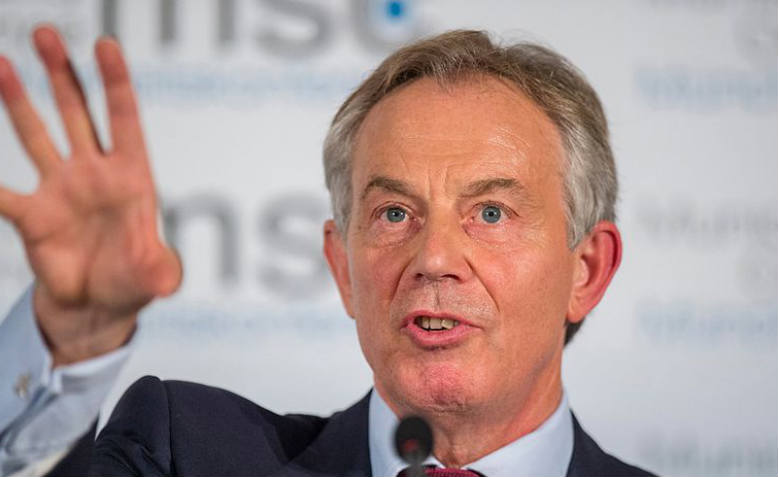 Tony Blair in 2014. Photo: Wikipedia
Tony Blair in 2014. Photo: Wikipedia
We now need action to finally achieve justice for Iraq, writes Lindsey German
For some people it was impossible to believe that this day would come. Seven years after Chilcot started to take evidence, 12 years after the previous inquiry into the Iraq war by Lord Butler, many anti-war protesters could be forgiven for being sceptical about what the report would say.
First impressions, announced over microphones and megaphones while being read from mobile phones, were met with a militant response. There was a sense of vindication for those of us who opposed the war from the outset and has renewed our determination. Because for us this is not the end of the matter, it is a new phase in the movement.
The indictment of Blair and those around him is so severe that it must lead to further action. It is unacceptable that he faces no charges or sanction, yet as we know Chilcot was set up in such away that no legal outcome is possible.
For anti-war protesters this is only a partial victory and it is bittersweet. We have marched in our millions, only to be ignored. And let’s not forget this was not just Labour politicians (despite the biggest Labour rebellion in history led by MPs such as Jeremy Corbyn), but nearly the whole of the Tory party in the House of Commons. The refusal to recognise the strength of public opinion or the views of constituents, has, in my view, been a major factor in the disaffection with politicians that is so obviously a major factor in political life today.
Wednesday’s protest was representative of the different components of the anti-war and peace movements. There were former school students who joined strikes against the war. There were representatives of the Muslim community celebrating Eid. There were Veterans for Peace, former soldiers who oppose war. There were trade unionists, peace activists, MPs, in much smaller numbers than at many of our protests but there symbolically to represent the millions who still feel the war was wrong and that they want those responsible to pay.
The demonstration outside the Chilcot report was for me and for many there an emotional one. Most of the military families were inside, but it was impossible not to remember the suffering of so many people as a result of the war. The estimated one million Iraqi dead, the millions of refugees, the victims of the sectarian killings and bombings, and of course the soldiers who have died or been injured and their families.
The world has been made a much more dangerous place, and the Middle East is in flames. The demonstrators who chanted: “Blair lied, thousands died”, or dressed up as judges arresting Blair, represent much wider forces in public opinion who must now be listened to.
Chilcot was devastating in his criticism, but the truth is that many of the points now being made were already being made in 2002 and 2003. This was not a catastrophe that was unforeseen. It was predicted by many, although probably none of us realised how bad the situation in Iraq would become. The truth also is that Chilcot would not have happened without a continuing anti-war movement. When people come together and stand in solidarity to demand truth and justice, as with the Hillsborough campaign, they can fight the establishment.
What needs to happen now? For us this does not draw a line under the whole affair, but opens up new campaigns. There has to be a legal outcome, and Blair should face charges. He should also be barred from public office.
This also sounds a warning about democracy in this country. In 2003 millions marched, blocked roads, occupied, walked out of school and took industrial action. All to stop the war before it started. The lack of accountability on the part of politicians and the wider establishment must end now.
This report will further deepen the political crisis in this country. Those on the wrong side of history need to acknowledge the profound error that they made, instead of cheerleading further interventions. There will be justice over Iraq, however long it takes. Part of that is acknowledging the disastrous nature of Britain’s military action in the past 15 years.

